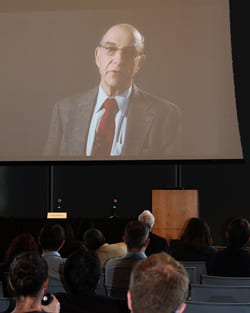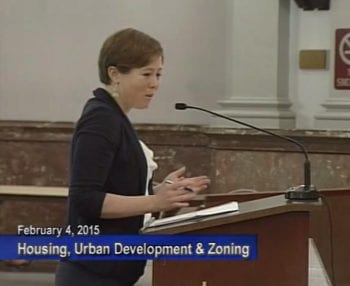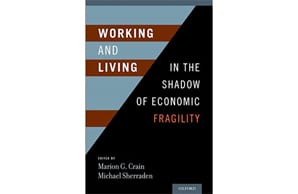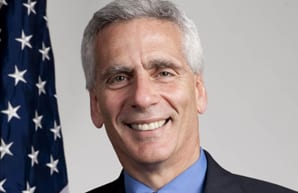The annual cost of childhood poverty in the United States is more than $1 trillion, according to a new study by Michael McLaughlin and Mark R. Rank.
Scholars identify the high price of U.S. childhood poverty


The annual cost of childhood poverty in the United States is more than $1 trillion, according to a new study by Michael McLaughlin and Mark R. Rank.

Warning that “we are going to see many more Fergusons in this country,” Richard Rothstein recounts the history of government’s role in racial segregation, in a video created for our event “Inclusive Housing: A Public Forum for Policy Action in St. Louis.”

Despite the passage of the Fair Housing Act in 1968, stark racial and economic segregation in housing continues. On Oct. 22, the Center for Social Development and the Clark-Fox Policy Institute hosted “Inclusive Housing: A Public Forum for Policy Action in St. Louis.”

Two new laws in St. Louis will expand housing options for Section 8 renters in the city. Alderwoman Christine Ingrassia sponsored the measures, which were influenced by recent research at Washington University in St. Louis.

The Great Recession and its aftermath — slow recovery, unemployment, underemployment and economic malaise — have produced an era unseen since the Great Depression. In an effort to study causes and find solutions, Washington University in St. Louis faculty from across disciplines are examining economic insecurity through the university’s Livable Lives Initiative.

Prior research would suggest that parks are an important element of a livable life. Evidence has connected physical activity, psychological restoration, and social health to proximity to parks and sites of recreation. This research, however, is primarily based on samples of university students and western European populations who are financially comfortable.

Washington University in St. Louis will host the “Work & Livable Lives Conference” from Feb. 27-28 to address current employment-related challenges and how they limit the ability of U.S. households to lead secure and stable lives, raise children successfully, and contribute to the community.
The university-wide Livable Lives Initiative investigates what social conditions and policy supports can make life with a low or moderate income stable, secure, satisfying, and successful.
Christina D. Romer, PhD, former chair of President Barack Obama’s Council of Economic Advisers, will deliver a keynote address to open a panel discussion on “The Continuing Unemployment Crisis: Causes, Cures, and Questions for Further Study” at 3 p.m. Tuesday, April 12, in the Bryan Cave Moot Courtroom of Anheuser-Busch Hall.
What does it take for a family in the US to not merely get by, but to have long-term economic security and ongoing opportunities? This was the question that inspired the creation of the Basic Economic Security Tables Index and accompanying Report.
The first public event of Washington University’s Livable Lives Initiative will highlight policy responses to employment and unemployment. Christina Romer, Former Chair of President Obama’s Council of Economic Advisors, will be the keynote speaker.
The Livable Lives Initiative started at the Brown School, with the vision of developing a mulit-disciplinary, University-wide project.